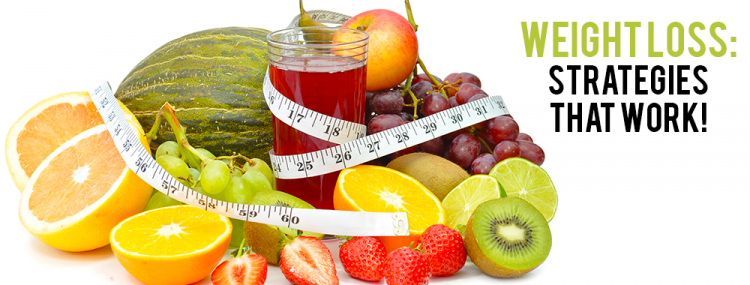Simple Strategies for Lasting Weight Loss

“So whether you eat or drink or whatever you do, do it all for the glory of God.” 1 Corinthians 10:31
We have become a society of over-abundance when it comes to eating. 7 out of 10 Americans are overweight and 4 out of 10 Americans are obese. Most of the world’s population live in countries where overweight and obesity kills more people than being underweight. Worldwide obesity has more than doubled since 1980. It is safe to say we have an epidemic on our hands.
As a society we are overweight and obese, but completely undernourished with the influx of processed and fast foods into our world. My mission in life is to reverse this trend. My mission is to help people to live long and healthy lives so they can have the energy they need to further God’s kingdom.
One of my favorite books about health and longevity is called “The Blue Zones: 9 lessons For Living Longer from the People Who’ve Lived the Longest.” The author Dan Buettner identified five areas in the world where people live longer and better lives. One of those areas was Okinawa Japan. The trait that the Okinawans implemented was known as “hara hachi bu” or quite simply eating until 80% full. The Okinawans say this mantra before each meal as a reminder to stop eating when their stomachs are 80% full. It sounds very simple and easy to do, but it isn’t.
One of the main reasons that this is so challenging is that the vast majority of time we eat unconsciously. We shovel food into our mouths so fast, that our body doesn’t have enough time to signal to the brain that it is full. It takes about 20 minutes from the signal to go from the stomach to the brain telling it is full and to stop eating.
This 20% gap between not being hungry and feeling full could be the difference between weight loss and weight gain. People who lived in the healthiest regions in the world ate a big breakfast, had a moderate lunch and then had their smallest meal in the late afternoon or early evening and then they don’t eat any more the rest of the day. I would say that we have that completely reversed here in the United States. We often times eat like we are never going to see food again.
Restricting calories has been shown to prolong life in lab animals and has been associated with better heart health in humans. Some of these benefits of reducing calories may result from reduced cellular damage from free radicals.
There is also another great benefit from reducing calories, weight loss. Losing just 10% of your body weight can help to lower blood pressure and cholesterol, which reduces the risk of heart disease.
What is normally done to lose weight is to go on a diet. I emphatically telling you to never go on a diet! Diets don’t work! People who lived in blue zones, the healthiest regions in the world, never went on a diet.
So what do you need to do to implement the 80% rule? I am going to outline a few strategies taken from the Blue Zones to help you to implement the hara hachi bu principle.
Strategy #1: Stop eating when you know longer feel hungry: Most Americans keep eating until their stomachs feel full, Okinawans stop as soon as they know longer feel hungry. It is a subtle difference, but a difference none the less. We typically gain weight by eating mindlessly and eating a little bit too much each and every day.
Strategy #2: Eat nutrient dense foods: Eat foods that are low in calories and high in nutrition. This is typically your fruits and vegetables. They provide bulk, fiber, phytonutrients and vitamins and minerals. We usually have it backwards. Think fast foods. A typical fast food meal of a large hamburger, large fries and a soft drink contains nearly 1500 calories. An overabundance of calories and minimal nutrition.
Strategy #3: Use smaller plates and glasses: Get rid of your big dinner plates and glasses. It has been proven that using smaller plates and narrower glasses leads to eating significantly less without even thinking about it.
Strategy #4: Make snacking a hassle: Rule number one of weight loss, if it is readily available in your house you will eat it. Do a pantry purge. Get rid of the junk in your house. Make this a 911! Replace it with healthy options like precut up fruit and vegetables. Challenge yourself to find healthy snacks. Try kale chips or cucumbers dipped in hummus.
Strategy #5: Eat more slowly: Eating faster invariably results in eating more. Slowing down allows time for the signal to go from our stomach to our brain saying we are full. How many times have you eaten to the point you feel like you are 100% full and then you get up from the dinner table and you realize you are absolutely stuffed and you are actually in pain because you realize you were 120% full. Not a great feeling. Think Thanksgiving Day meal.
Eat slowly sounds simple, but I think we all know that it isn’t. It’s simple in theory, but hard in practice, especially in light of the busy world we live in. Eating slowly and eating until you are 80% full go hand in hand. It’s really hard to effectively implement one strategy without the other. Here are some practical tips you can implement when adopting a slow eating lifestyle:
Tip #1: Put your fork down between bites. Relax. Breathe. Take a few extra moments before you pick up the fork again.
Tip #2: Set a timer if needed-start with 15 minutes per meal as a basic goal. Work up to 20 or even 30 minutes. Chew a few more times than you think you need to. Enjoy and savor each bite. If you are eating something delicious, take pleasure in it. Notice smells, flavors and textures.
Tip #3: Eat mindfully without distractions, such as TV, smartphones or the computer. Pleasant conversation with friends and families is encouraged. I think eating mindfully is one of the biggest things we need to get back to. Mindless eating or eating for reasons other than hunger can catch up with you quickly. Every time you eat you should ask yourself this question, “Am I truly hungry or am I eating because I am stressed, bored, anxious, depressed, etc.?”
If you are eating for reasons other than hunger you will never be satisfied. If you are truly hungry than eat. But if you are going to eat, than just eat. Turn off the TV and computer and just focus on eating. You will eat more slowly, eat less and enjoy your food more.
Although eating until 80% full and eating slowly sounds super simple, it can be very challenging to implement these strategies. Be patient with yourself. Just like any other habit you are trying to implement it takes time. It’s normal to struggle with this habit, but it can be a game-changer.
One of the fruits of the spirit is self-control. 2nd Timothy 1:7 says, “For the Spirit God gave us does not make us timid, but gives us power, love and self-discipline. Lean into God’s strength to help you exercise self -control when it comes to your eating.
I want to invite you to try these two strategies of eating until you are 80% full and eating slowly as often as you can over the next two weeks. Notice and name the changes that you see in your eating habits. Not only will you feel better, you will lose weight as well. So do as the Okinawans do before each meal. Take a moment to repeat the mantra of hara hachi bu and give yourself a reminder to slow down and eat until you are only 80% full.
When you are trying to make nutrition changes, don’t go it alone. The status quo is to try and figure things out on your own and ending up frustrated and discouraged. I see the possibility of us working together to help you make sustainable life changes so you can be physically, mentally and spiritually fit. One of the best things you can do is to get coaching. A great coach will be there to inspire, encourage and teach you about health, fitness, nutrition and spiritual and mental fitness. To go beyond the status quo and explore this possibility, please reach out to me at troy@troyismir.com or come visit me at The Body in Fort Collins, CO located at 4848 S. College Ave.
Troy Ismir, MS
Health Coach and Personal Trainer

0 comments
Leave a comment
Please log in or register to post a comment